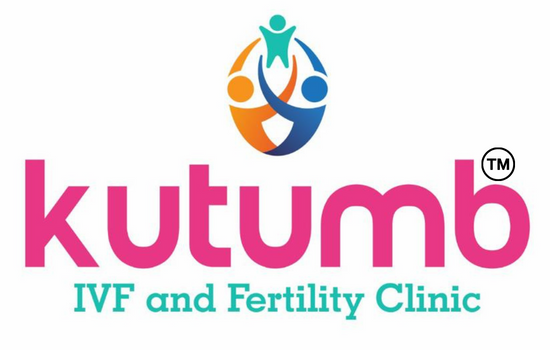 What are Infertility Treatments?
What are Infertility Treatments?
Infertility treatments encompass a range of medical procedures and interventions aimed at overcoming barriers to conception. These treatments are recommended when natural conception does not occur despite regular, unprotected intercourse for an extended period—usually one year for women under 35 and six months for women over 35.
Infertility can stem from various factors affecting either partner or both, including hormonal imbalances, structural issues in the reproductive system, genetic factors, or lifestyle choices. Treatments are tailored to the specific cause identified through comprehensive medical assessments. If you are looking for the best IVF doctor in Visakhapatnam, it’s crucial to choose a specialist with a strong track record in treating various infertility issues through personalized and effective treatment plans.
 Overview of Common Infertility Treatments
Overview of Common Infertility Treatments
Infertility treatments encompass a variety of medical interventions aimed at overcoming obstacles to conception. Here’s a breakdown of some of the most common treatments:
1. Intrauterine Insemination (IUI)
Purpose: Intrauterine insemination (IUI) involves placing sperm directly into the uterus to facilitate fertilization.
Procedure: Semen is washed and concentrated to increase the number of healthy sperm before it is placed directly into the uterus using a thin catheter.
Effectiveness: Success rates for IUI vary depending on factors such as the age of the woman, the cause of infertility, and sperm quality. Generally, success rates per cycle range from 10% to 20%.
2. In Vitro Fertilization (IVF)
Purpose: In vitro fertilization (IVF) is one of the most well-known assisted reproductive technologies (ART) that involves fertilizing an egg with sperm outside the body.
Procedure: IVF typically involves ovarian stimulation to produce multiple eggs, which are then retrieved from the ovaries and fertilized in a laboratory. The resulting embryos are then transferred into the uterus.
Effectiveness: IVF success rates vary widely depending on factors such as the woman’s age, the quality of embryos, and the clinic performing the procedure. On average, success rates per cycle range from 30% to 60%.
3. Intracytoplasmic Sperm Injection (ICSI)
Purpose: Intracytoplasmic sperm injection (ICSI) is used when there are issues with sperm quality or quantity.
Procedure: In ICSI, a single sperm is injected directly into an egg to facilitate fertilization. This technique is particularly useful in cases of male infertility.
Effectiveness: ICSI has high success rates for overcoming male factor infertility. Success rates can be similar to those of IVF, depending on individual circumstances.
4. Donor Eggs or Sperm
Purpose: Donor eggs or sperm are used when one partner is unable to produce viable gametes.
Procedure: Donor eggs or sperm are obtained from a donor and used in conjunction with IVF or IUI to achieve pregnancy.
Effectiveness: The success rates for donor eggs or sperm depend on the quality of the gametes and the age of the woman receiving them. Generally, success rates can be quite high, particularly when using donor eggs from young, healthy donors.
5. Surrogacy
Purpose: Surrogacy involves a surrogate carrying a pregnancy for another person or couple who cannot conceive or carry a pregnancy to term.
Procedure: The embryo is created using IVF with either the intended mother’s or a donor’s egg and the intended father’s or a donor’s sperm. The embryo is then transferred to the surrogate’s uterus for gestation.
Effectiveness: Surrogacy can be highly effective in cases where carrying a pregnancy is not possible for medical reasons. Success rates depend on various factors, including the age and health of the surrogate.
 Success Rates of Infertility Treatments
Success Rates of Infertility Treatments
1. Intrauterine Insemination (IUI):
• Success Rate: The success rate of IUI varies widely but is generally around 10% to 20% per cycle. Success is influenced by factors such as the woman’s age, sperm quality, and the reason for infertility.
2. In Vitro Fertilization (IVF):
• Success Rate: IVF success rates depend heavily on the woman’s age, quality of embryos, and the clinic’s expertise. On average, success rates per cycle range from 30% to 60%, with higher success rates often seen in younger women and when using donor eggs.
3. Intracytoplasmic Sperm Injection (ICSI):
• Success Rate: ICSI is highly effective for overcoming male infertility issues. Success rates are similar to IVF, ranging from 40% to 60% per cycle, depending on individual circumstances.
4. Donor Eggs or Sperm:
• Success Rate: Using donor eggs or sperm can significantly increase success rates, particularly when the donor is young and healthy. Success rates can exceed 50% per cycle, depending on the quality of the gametes and the age of the recipient.
5. Surrogacy:
• Success Rate: Surrogacy success rates can be high, often exceeding 50% per embryo transfer. Success depends on various factors, including the health of the surrogate and the quality of the embryos transferred.
 Factors Affecting Treatment Effectiveness
Factors Affecting Treatment Effectiveness
Several factors play crucial roles in determining the effectiveness of infertility treatments:
1. Age: Female age is one of the most significant factors affecting treatment success. Fertility declines with age, particularly after age 35, due to a decrease in egg quality and quantity.
2. Cause of Infertility: The underlying cause of infertility greatly influences treatment outcomes. Treatments tailored to address specific causes such as ovulation disorders, tubal factors, or male factor infertility can lead to higher success rates.
3. Reproductive History: Previous pregnancies or miscarriages can impact treatment success. Women with a history of successful pregnancies may have higher success rates with certain treatments compared to those with no previous pregnancies.
4. Lifestyle Factors: Factors such as body weight, smoking, alcohol consumption, and stress can affect fertility and treatment outcomes. Adopting a healthy lifestyle can improve the chances of success with infertility treatments.
5. Treatment Protocol and Clinic Expertise: The specific treatment protocol and the expertise of the fertility clinic performing the procedures also influence success rates. Experienced clinics with advanced technology may achieve higher success rates compared to less specialized centers.
6. Emotional and Psychological Factors: The emotional and psychological state of individuals undergoing treatment can impact outcomes. Managing stress and seeking emotional support can positively influence treatment effectiveness.
Conclusion
Infertility treatments employ advanced medical techniques to address specific barriers to conception, offering hope and possibilities for couples struggling to conceive naturally. While effectiveness varies based on factors like treatment type and individual health, these interventions significantly enhance the chances of achieving pregnancy. With ongoing advancements in medical technology and personalized care from an infertility specialist in Vizag, infertility treatments continue to evolve, providing tailored solutions and fostering the dream of parenthood for many.
